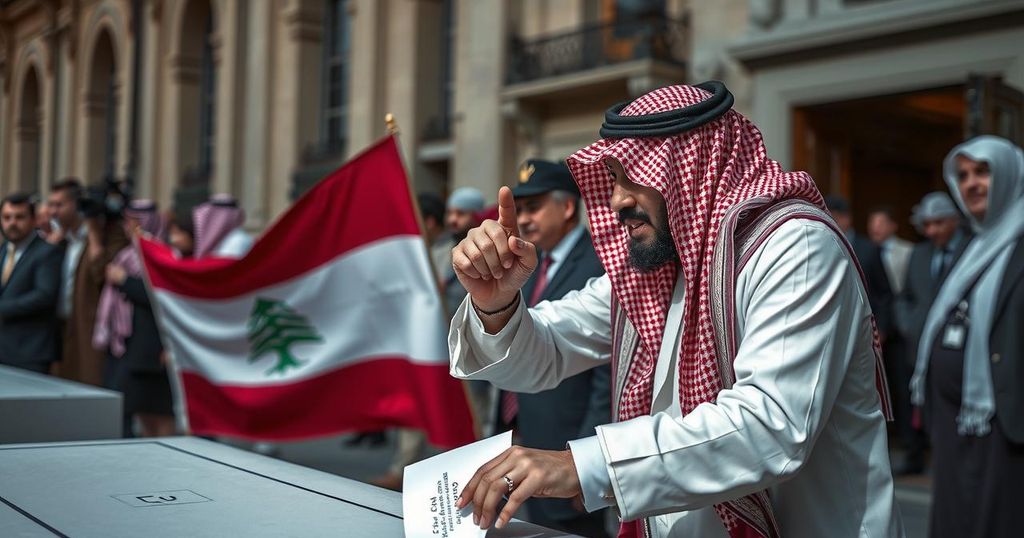Lebanon Elects New President: A Pivotal Moment Fueled by Saudi Diplomacy
On Thursday, Lebanon elected Army Chief Joseph Aoun as President, marking a significant turning point following a two-year political deadlock. Saudi Arabia’s intervention was instrumental in uniting various political factions to support Aoun, who now faces the challenge of disarming Hezbollah while managing Lebanon’s complex political landscape.
On Thursday, Lebanon experienced a significant turning point exemplified by the election of Army Chief Joseph Aoun as President after a sustained period of political deadlock. Saudi Arabia played a crucial role in facilitating this outcome by dispatching a delegation to Beirut, which engaged with various political factions to consolidate support for Aoun. Ultimately, 99 lawmakers voted in favor of his election, effectively breaking a two-year stalemate characterized by failed attempts to appoint a leader.
Aoun’s ascension to the presidency marks a critical shift in Lebanon’s political landscape, as it aims to address the pervasive challenges posed by Hezbollah. Following his election, he delivered a speech emphasizing the need for national unity and the disarmament of militant groups within Lebanon, including Hezbollah, which has been entrenched in the country for decades. Amidst the jubilation in the streets, where citizens celebrated the end of the presidential vacuum, questions arose regarding Saudi Arabia’s renewed engagement with Lebanon after years of perceived neglect.
Hezbollah’s unexpected support for Aoun’s candidacy, despite his mandate to disarm them, was interpreted as a strategic decision amidst their weakened position following regional conflicts and leadership changes in Syria. Concurrently, various international diplomats, including representatives from the United States and France, conducted discussions to galvanize support for Aoun, emphasizing the delicate and complex nature of Lebanon’s political dynamics.
This article highlights the pivotal moment in Lebanon’s political history following the appointment of a new president amid significant regional and international influences. The election occurred against a background of prolonged political stalemate and the influence of Saudi Arabia, which has historically been a key player in Lebanese affairs. The interplay among different political factions, especially the role of Hezbollah and its allies, underlines the complexities surrounding governance in Lebanon, particularly regarding the disarmament of militant groups and the management of foreign influence.
The election of President Joseph Aoun reflects a critical juncture for Lebanon, breaking a two-year political stalemate and symbolizing a potential shift in the balance of power among various factions. Saudi Arabia’s re-engagement in Lebanese politics, coupled with Hezbollah’s strategic maneuvering, underscores the interplay of regional powers in shaping Lebanon’s future. As Lebanon navigates these new political waters, the emphasis will be on achieving stability, addressing the influence of militant groups, and fostering a climate conducive to socio-economic progress.
Original Source: www.cnn.com




Post Comment